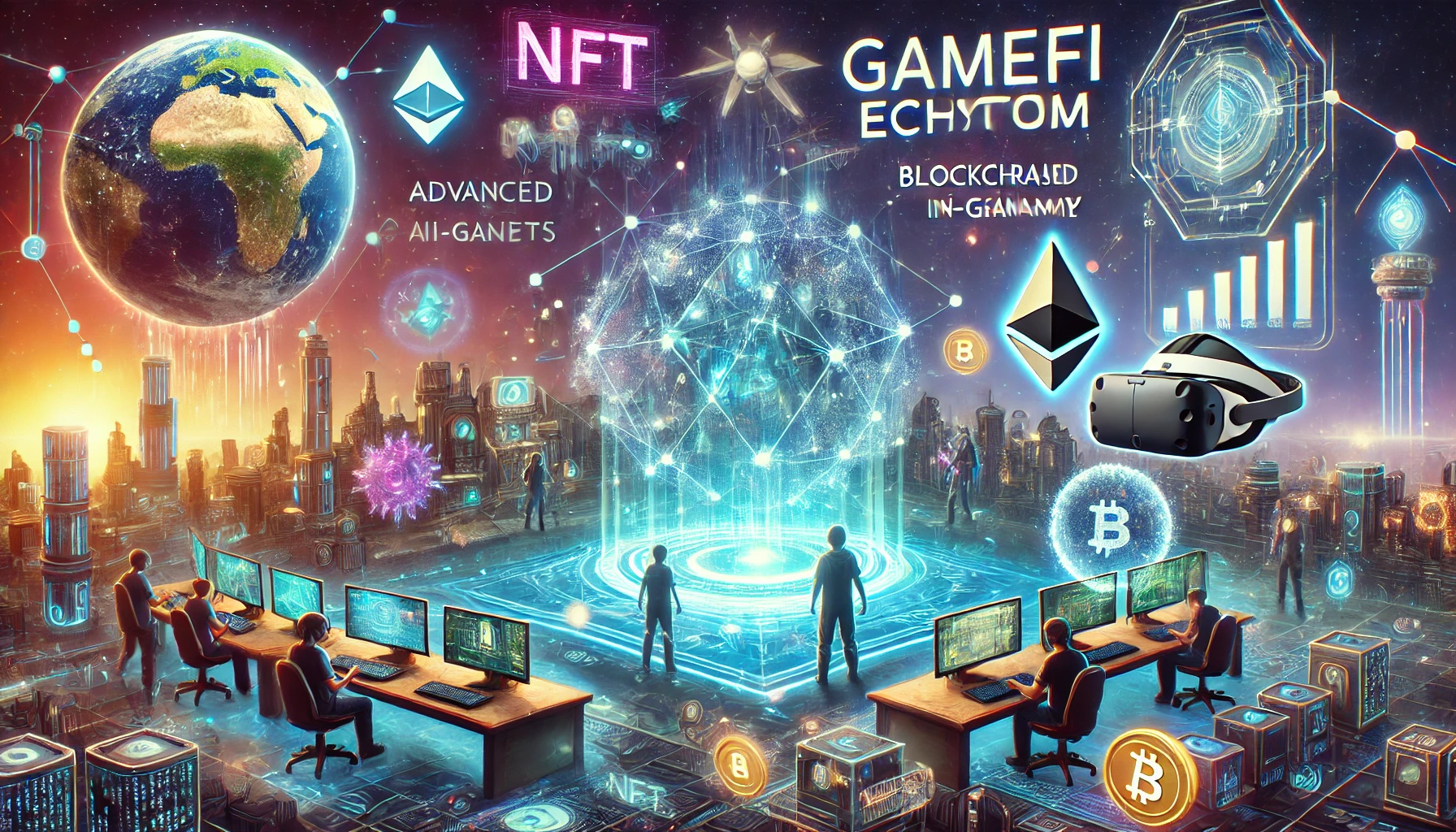Empowering GameFi ecosystems: The convergence of AI, blockchain, and decentralized finance
The integration of AI and blockchain technology in gaming is still in its infancy, but the research offers a compelling blueprint for its future. By combining immersive gameplay with robust economic frameworks, GameFi has the potential to transcend traditional gaming paradigms and create decentralized ecosystems where players, creators, and developers collaborate seamlessly.

The gaming industry is undergoing a paradigm shift, driven by the integration of decentralized finance (DeFi) into gaming ecosystems, a phenomenon widely known as GameFi. While GameFi has unlocked new dimensions of player engagement by enabling financial rewards through gameplay, it faces significant challenges in maintaining long-term player engagement and fostering robust in-game economies. The study "Decentralized Intelligence in GameFi: Embodied AI Agents and the Convergence of DeFi and Virtual Ecosystems" addresses these challenges with a visionary approach - leveraging embodied AI agents and advanced blockchain technologies to create immersive, adaptive, and community-driven ecosystems. This article unpacks the research, exploring how GameFi is evolving to redefine gaming and economic participation in virtual spaces.
Challenges and opportunities in GameFi
GameFi, at its core, bridges the gap between gaming and blockchain by providing players with true ownership of in-game assets, often represented as non-fungible tokens (NFTs). The integration of DeFi tools like staking and token rewards has introduced play-to-earn models, transforming passive gameplay into active economic participation. According to the study, this sector has grown significantly, with global revenues from play-to-earn platforms expected to reach billions by 2025.
However, many current GameFi platforms suffer from static gameplay and shallow economic mechanisms. Limited AI capabilities lead to repetitive player experiences, while basic DeFi functionalities restrict the potential for meaningful financial interactions. The absence of community-driven content creation tools further stifles innovation and limits platform growth. Without addressing these limitations, the long-term sustainability of GameFi ecosystems remains in jeopardy.
The study introduces embodied AI agents as a solution to stagnant player engagement. These agents, powered by advanced large language models (LLMs) like GPT-4, are designed to adapt and respond dynamically to player behavior. Unlike traditional AI that relies on scripted interactions, embodied agents offer a level of personalization that was previously unattainable. They engage players through narrative-driven dialogues, proactive decision-making, and real-time adaptability.
For example, an AI companion in a fantasy GameFi platform could tailor quests to a player’s skill level, introduce new challenges based on previous gameplay, or guide players through complex DeFi mechanisms. The research highlights that such AI-driven interactivity could increase player retention by up to 40%, revolutionizing how players experience virtual worlds.
Enhancing GameFi through AI, Blockchain, and DeFi
One of the most transformative aspects of GameFi lies in its ability to combine traditional gaming elements with Web3 technologies. Blockchain ensures transparent ownership and secure transactions, empowering players with genuine control over in-game assets. However, the research stresses the importance of deeper DeFi integration to unlock the full potential of GameFi economies.
By introducing features such as yield farming, liquidity pools, and decentralized governance, GameFi platforms can create vibrant, self-sustaining economies. For instance, a player could earn tokens through gameplay, stake them for governance rights, and participate in decisions about game development or asset creation. This participatory model fosters economic inclusivity and democratizes virtual asset management.
The integration of AI into blockchain ecosystems presents significant technical hurdles, including scalability and computational constraints. The study proposes leveraging decentralized oracle networks (DONs), such as Chainlink 2.0, to address these issues. These networks enable off-chain computation, reducing the burden on blockchain infrastructure while maintaining decentralization.
For example, the study describes how AI agents can perform resource-intensive tasks off-chain, such as processing natural language interactions or analyzing gameplay patterns. The results are then securely transmitted to the blockchain using oracles, ensuring real-time updates without compromising performance. This hybrid approach not only enhances scalability but also retains the transparency and trust inherent in blockchain systems.
A thriving GameFi ecosystem is built on active community participation. The research emphasizes the need for tools that allow creators to develop, monetize, and share content. Through decentralized governance models, creators can influence platform policies and contribute to its evolution. Furthermore, AI-powered tools can assist creators in designing dynamic gameplay elements or generating NFT-based content.
For instance, an artist could mint a unique NFT tied to an AI-generated quest, earning royalties each time the quest is completed. Such mechanisms incentivize diverse contributions, fostering a collaborative and innovative ecosystem.
Furthermore, the study underscores the potential of integrating sophisticated DeFi mechanisms within GameFi. By embedding tools like automated market makers (AMMs), decentralized exchanges (DEXs), and staking pools, platforms can offer players and creators multiple avenues for economic participation. For instance, players could trade NFTs representing rare game assets on DEXs, participate in yield farming to earn passive income, or vote on in-game policies through governance tokens.
AI agents can further simplify these processes by acting as financial advisors within the game. They can guide players on how to maximize returns from staking or provide insights into market trends for in-game assets, making DeFi more accessible to casual gamers.
The road ahead: A unified vision for GameFi
The integration of AI and blockchain technology in gaming is still in its infancy, but the research offers a compelling blueprint for its future. By combining immersive gameplay with robust economic frameworks, GameFi has the potential to transcend traditional gaming paradigms and create decentralized ecosystems where players, creators, and developers collaborate seamlessly.
Future advancements could include the adoption of Layer 2 solutions for faster transactions, cross-chain interoperability to broaden user bases, and advanced AI functionalities for deeper interactivity. Additionally, the development of sustainable tokenomics will be crucial to maintaining balanced in-game economies.
- FIRST PUBLISHED IN:
- Devdiscourse










